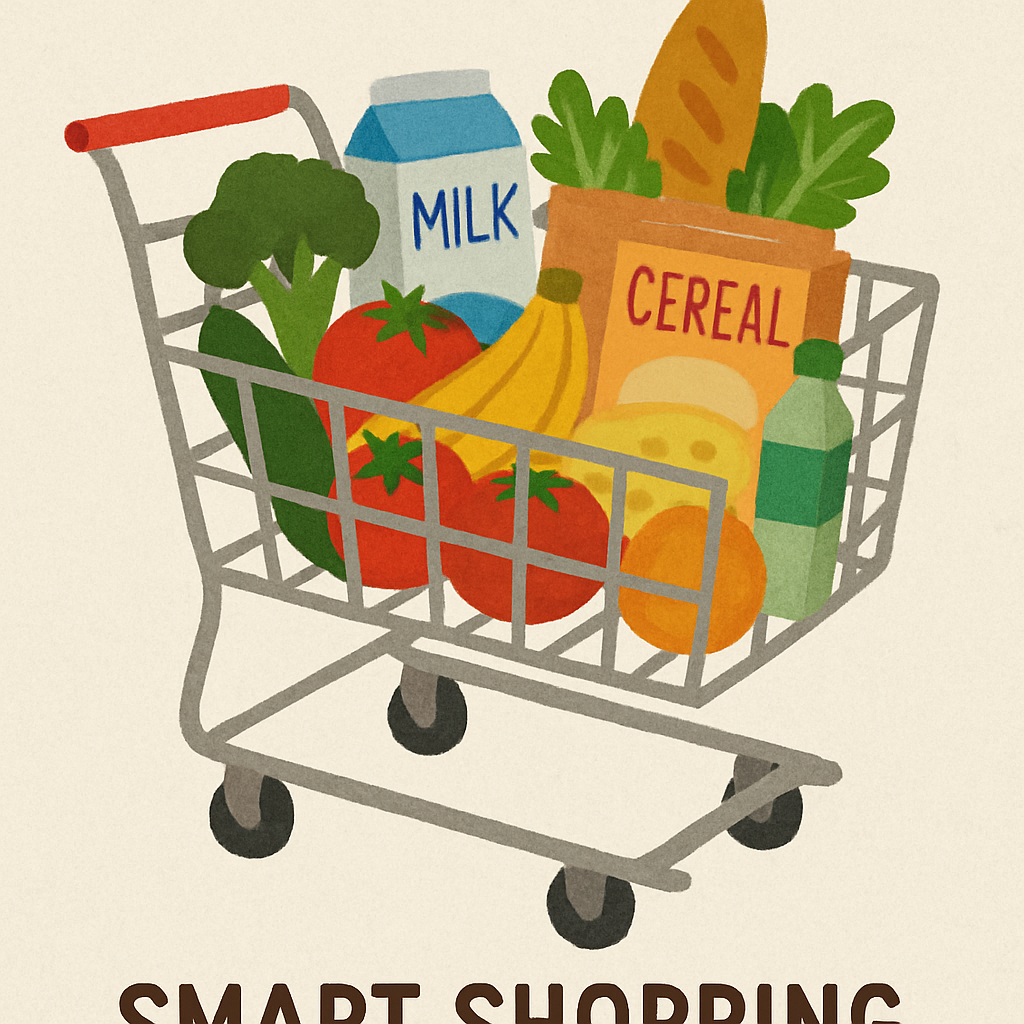
Meal Planning to Save Money: Smart Tips & Tricks
Discover how meal planning to save money transforms grocery habits with our smart tips. Cut costs, reduce waste, and enjoy nutritious meals today.
Smart Meal Planning Tips for Budgeting
Meal planning is a powerful tool for saving money on groceries. It helps you organize meals and reduce waste.
By planning meals, you can avoid impulse buys and stick to your budget. This approach ensures you only buy what you need.
With a little effort, meal planning can transform your grocery shopping habits. It makes budgeting easier and more effective.
You'll find that meal planning not only saves money but also time. It simplifies decision-making and reduces stress during busy weeks. Ready to start saving? Let's explore smart meal planning tips that will help you budget better.
Why Meal Planning Helps You Save on Groceries
Meal planning helps you save on groceries by reducing waste. When you plan meals, you only buy what you need. This minimizes food going unused and thrown out.
Organizing meals encourages you to take advantage of sales and discounts. Look for store deals and seasonal produce. These small savings can add up over time.
Here's how meal planning saves money:
- Minimizes impulse buys.
- Reduces food waste.
- Maximizes use of discounts.

By adopting meal planning, you can manage your grocery budget effectively. This habit helps keep your spending in check.
Step-by-Step Guide to Budget Meal Prep
Budget meal prep might seem daunting, but it simplifies your food budget. Follow these simple steps to start saving money right away. First, establish a clear food budget for each week. This keeps your spending on track and prevents unnecessary purchases. Next, assess your current pantry and fridge contents. Take inventory to avoid buying items you already have. Plan meals using discounted items and seasonal produce. This approach maximizes savings and adds variety to your diet. Compile a detailed shopping list based on your meal plan. This list helps keep you focused during grocery trips. At the store, shop smart by staying committed to your list. Avoid impulse buying, especially with tempting packaged goods.

With these steps, budget meal prep becomes manageable and effective. Start small, and soon, this habit will pay off.
1. Set Your Food Budget
Setting your food budget is crucial. Determine the amount you can comfortably spend each week on groceries.
Stick to this budget by prioritizing essentials over luxuries. A strict budget helps avoid overspending. By sticking to your financial plan, you ensure funds for other needs. This discipline aids financial health.
2. Check Your Pantry and Fridge
Before shopping, check what's in your pantry and fridge. This step prevents buying duplicates.
Create an inventory of ingredients you already own:
- Canned goods
- Spices
- Fresh produce
- Frozen foods
Knowing what you have saves both money and space. Keep this inventory updated for easy reference. Utilize these items in your meal plan.
3. Plan Meals Around Sales and Seasonal Produce
Planning meals around sales can boost your savings. Scan for weekly sales ads from local stores.
Create a meal plan using discounted items:
- Produce in season
- Items from the weekly sales flyer
- Buy-one-get-one offers
Use seasonal produce for budget-friendly, fresh meals. In-season items are usually cheaper and taste better. This approach keeps meals varied and flavorful.

by Junaid Rahim (https://unsplash.com/@junaidrahxm)
4. Make a Detailed Shopping List
Develop a detailed shopping list to prevent unplanned purchases. Include only what’s needed for your planned meals.
Your list should cover all essentials while avoiding extra items. Organize it by category for efficient shopping. Consider including:
- Proteins
- Dairy
- Vegetables
- Grains
This method streamlines shopping trips, saving time and money.
5. Shop Smart and Stick to Your List
Shopping smart means being disciplined. Navigate the store with intention. Keep to the outer aisles for fresh foods.
Remain committed to the list to avoid extra purchases. Resist impulse buys, even if they're on sale.
Key tips for smart shopping:
- Compare unit prices
- Choose store brands
- Use coupons

by Zoshua Colah (https://unsplash.com/@zoshuacolah)
By sticking to these strategies, you keep your expenses in check while enjoying nutritious meals.
Batch Cooking and Using Leftovers Wisely
Batch cooking is a time-saving and cost-effective strategy. Prepare larger portions and store them for later. This method saves on energy and ingredients.
Utilize leftovers smartly to prevent waste. Transform remaining portions into new meals. Leftover chicken can become a delicious salad or a hearty soup.
Here are some ways to make the most of batch cooking and leftovers:
- Freeze portions for busy days
- Repurpose leftovers in creative ways
- Label containers with dates for freshness

by Yuri Krupenin (https://unsplash.com/@cubeofwood)
Batch cooking, when combined with leftover management, enhances meal planning efficiency. Embrace this habit to boost savings and minimize kitchen waste.
Tips for Affordable and Nutritious Meals
Eating well without overspending is achievable. Start by choosing simple recipes with minimal ingredients. This approach simplifies shopping and cooking while keeping costs low.
Focus on including seasonal produce in your meals. Seasonal fruits and vegetables tend to be cheaper and fresher. Experiment with different cooking methods to make meals interesting.
Here are some budget-friendly tips for nutritious eating:
- Opt for dried beans and grains over canned versions
- Cook meatless meals several times a week
- Grow a small herb garden for fresh flavor
Incorporating these strategies ensures that each meal is both cost-effective and wholesome. Making small changes can greatly impact both your health and wallet.
Tools and Resources for Easy Meal Planning
Many tools simplify meal planning, making it stress-free. From digital apps to traditional planners, options are plentiful. Choose ones that fit your style and needs.
This App is a great resource for meal planning. It helps you organize recipes, create shopping lists, and track your budget. With its user-friendly interface, you can easily plan meals for the week.
(Register Now)[https://foodsaver.uk/register]
Other resources you could consider:
- Meal planning apps like Mealime and Plan to Eat
- Online recipe websites for inspiration
- Printable meal planning templates
Utilizing these tools can enhance your planning efficiency and keep you organized.
Final Thoughts: Make Meal Planning a Money-Saving Habit
Integrating meal planning into your routine can transform your grocery spending. Consistency is key to maximizing savings and minimizing waste. By regularly organizing meals, you develop habits that boost your budget.
Remember, meal planning isn't just about saving money. It also offers you healthier, more balanced food choices. Keep refining your approach, and you'll enjoy both financial and dietary benefits.
